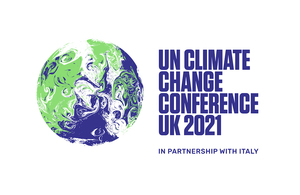Alok Sharma speaks at the second ministerial meeting of the Energy Transition Council
On behalf of my co-chair Damilola and myself – excellencies, Ministers, friends, a very warm welcome to the second ministerial meeting of the Energy Transition Council, or ETC.
I hope that today we are going to make real progress on how, together, we can accelerate this move to clean energy around the world.
Many of you will be aware that since we last met, in December, we have seen the work of the Council get going, and get going off to a flying start, I would say.
This is following nine country dialogues, and two regional meetings. Together, countries and Council members are making sure that clean power is the most attractive option.
Let me give some examples. In Egypt, the ETC Dialogue identified where collaboration could help to deliver the government’s energy ambitions. And having been to Cairo myself over the last few weeks, I know this is something the Government has focused on.
In Kenya, again a country I have recently been to, ETC collaboration is helping to secure the investment and technical assistance required to reach 100 percent renewables within the next decade.
And in India, Council partners are working with the government to support Prime Minister Modi’s vision of ‘One Sun One World One Grid’. And again, during my recent visit, I know this is a particular focus for the Prime Minister and Government.
These national and regional dialogues have also shown us very clearly where the gaps are.
Where more support and action are needed if we are to get the clean energy transition moving faster.
And these are areas that I hope we are going to make progress on today, but also – very importantly – in the weeks and months ahead.
To summarise these, first we need long-term decarbonisation strategies to inform energy planning. This is essential to mobilise investment, and technical expertise at the scale required.
Second, countries need more support to integrate renewables into their energy systems.
Third, more work is needed from all parties to mobilise finance for investment and innovation. I believe this is one of the key areas of focus.
And, of course, that means development partners using their funding to crowd in greater private finance and investment. And developing countries putting the right policy and regulatory environments in place.
And fourth, the whole issue of the just transition, I believe, is absolutely key. We know that investing in low carbon power has the potential to create good quality jobs. It is absolutely essential that development partners help to ensure that those benefits are felt in coal dependent communities particularly.
To this effect, the ETC is working on a set of principles on international support for a just transition, and we will be presenting those later this year.
And, shortly, as the moderator mentioned, we will hear from ETC members on how we can address each of these four key issues.
I very much hope that we will have productive discussions today, to find solutions to countries’ technology, policy, and investment needs. In the context of both the short and long term.
And I am pleased to say that the next round of national and regional ETC meetings will bring in civil society, investors, and utilities. All of whom, as we know, have a vital role to play in tackling these issues.
I am also very pleased to announce that the ETC is today launching a Rapid Response Facility, or RRF for short.
This has been set up to provide short-term technical assistance to support countries with their immediate needs in making the energy transition.
Needs that have been raised by countries in the ETC dialogues that we’ve had so far. And these needs include resource planning and renegotiating Power Purchase Agreements.
$10million has been committed to the RRF so far from Council members and partners, including the AfDB, the ADB, the World Bank, the Climate Investment Funds, France, Germany, the UK Government, the IEA, and IRENA. And I am very grateful for everyone who has made a contribution.
And I encourage all our ministerial colleagues with us today to make the strongest possible commitments on the energy transition ahead of COP26.
And that includes committing to new clear power projects, announcing an end to coal power, or at least no new coal power in your countries.
And to consider how collaboration through the ETC can help you achieve this.
So, by COP26 we want all countries and partners to have come forward with announcements on how they can support or deliver on a faster transition to clean power.
But of course this challenge is not going to end in Glasgow.
The collaborative approach we are taking through the ETC is vital to the clean energy transition. And I want to ensure that it continues well after COP26.
So, I ask that you all work with us over the next months to establish a long-term future for this Council, leaving an enduring legacy of collaboration that we can be proud of.
But now I think we need to get on with our discussions. And, together, get the clean energy transition moving faster around the world.



